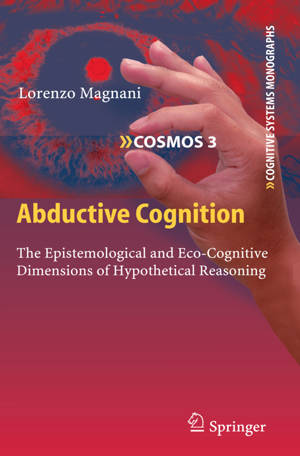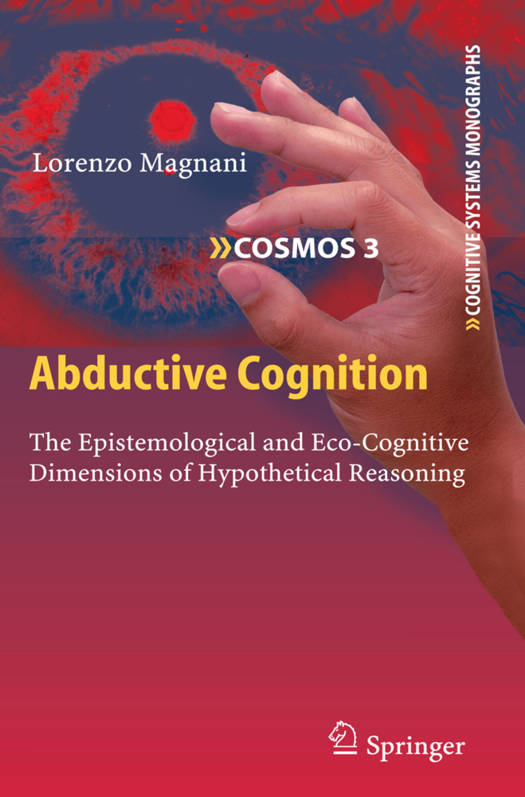
- Afhalen na 1 uur in een winkel met voorraad
- Gratis thuislevering in België vanaf € 30
- Ruim aanbod met 7 miljoen producten
- Afhalen na 1 uur in een winkel met voorraad
- Gratis thuislevering in België vanaf € 30
- Ruim aanbod met 7 miljoen producten
Zoeken
Abductive Cognition
The Epistemological and Eco-Cognitive Dimensions of Hypothetical Reasoning
Lorenzo Magnani
€ 259,45
+ 518 punten
Uitvoering
Omschrijving
Thisvolumeexploresabductivecognition, animportantbut, atleastuntilthe third quarter of the last century, neglected topic in cognition. It integrates and further develops ideas already introduced in a previous book, which I published in 2001 (Abduction, Reason, and Science. Processes of Discovery and Explanation, Kluwer Academic/Plenum Publishers, New York). Thestatusofabductionisverycontroversial. Whendealingwithabductive reasoning misinterpretations and equivocations are common. What are the di?erences between abduction and induction? What are the di?erences - tween abduction and the well-known hypothetico-deductive method? What did Peircemeanwhen heconsideredabductionboth a kindofinferenceanda kind of instinct or when he considered perception a kind of abduction? Does abduction involve only the generation of hypotheses or their evaluation too? Are the criteria for the best explanation in abductive reasoning epistemic, or pragmatic, or both? Does abduction preserve ignorance or extend truth or both? How many kinds of abduction are there? Is abduction merely a kind of "explanatory" inference or does it involve other non-explanatory ways of guessing hypotheses? The book aims at increasing knowledge about creative and expert inf- ences. The study of these high-level methods of abductive reasoning is s- uated at the crossroads of philosophy, logic, epistemology, arti?cial intel- gence, neuroscience, cognitive psychology, animal cognition and evolutionary theories; that is, at the heart of cognitive science. Philosophers of science in thetwentiethcenturyhavetraditionallydistinguishedbetweentheinferential processesactiveinthelogicofdiscoveryandtheonesactiveinthelogicofj- ti?cation. Most have concluded that no logic of creative processes exists and, moreover, that a rational model of discovery is impossible. In short, scienti?c creative inferences are irrational and there is no "reasoning" to hypotheses.
Specificaties
Betrokkenen
- Auteur(s):
- Uitgeverij:
Inhoud
- Aantal bladzijden:
- 535
- Taal:
- Engels
- Reeks:
- Reeksnummer:
- nr. 3
Eigenschappen
- Productcode (EAN):
- 9783642260827
- Verschijningsdatum:
- 14/03/2012
- Uitvoering:
- Paperback
- Formaat:
- Trade paperback (VS)
- Afmetingen:
- 156 mm x 234 mm
- Gewicht:
- 775 g

Alleen bij Standaard Boekhandel
+ 518 punten op je klantenkaart van Standaard Boekhandel
Beoordelingen
We publiceren alleen reviews die voldoen aan de voorwaarden voor reviews. Bekijk onze voorwaarden voor reviews.








